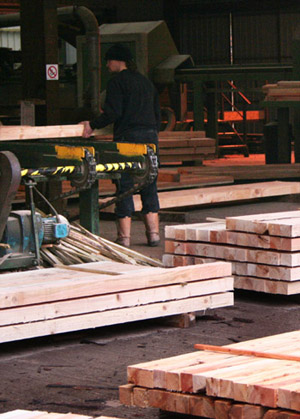Sawmill Manager
Tasks & duties

Sawmill managers may do some or all of the following:
-
set production goals and make sure they are reached
-
work out any production problems
-
monitor the quality of the timber product
-
maintain contact with industry colleagues to keep up to date with industry developments and trends
-
oversee budgets and costs
-
make decisions on the maintenance and replacement of equipment
-
oversee health and safety procedures in the mill
-
recruit and direct staff
Skills & knowledge
Sawmill managers need to have:
-
knowledge of the forestry industry
-
knowledge of timber products
-
an understanding of sawmill processing methods and technology
-
the ability to operate machinery
-
knowledge of budgeting, business management and human resources
-
understanding of environmental law and health and safety regulations
-
good communication and leadership skills
-
problem-solving and decision-making skills
-
good computer skills
-
report writing skills
-
analytical skills
Entry requirements
There are no specific entry requirements to become a sawmill manager, although tertiary qualifications are useful. You should have experience working in sawmills and leading people.
Secondary education
There are no specific secondary education requirements. However, useful subjects include English, maths, science, economics and woodwork.
Tertiary education
A tertiary qualification is preferred, such as the National Certificate in Solid Wood Processing. A degree in mechanical or electrical engineering, business, or forestry is also useful.
Training on the job
Skills are gained on the job. Sawmill managers may also do training in health and safety management, human resources, management or budgeting.
Useful experience
Useful experience for sawmill managers includes work in the forestry or timber industries, or in operations management.
Related courses
Business Management
Solid Wood Processing
Wood Based Manufacturing
For more information, please refer to Career Services.
Document Actions
